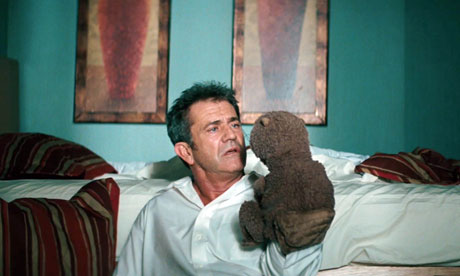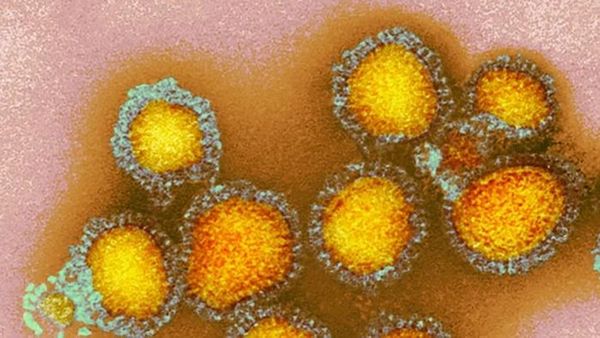
Is it faintly conceivable that "a hopelessly depressed individual" would outsource his psyche to a garrulous glove puppet to distance himself from "the negative aspects of his personality"? Not really. Depression isn't like that.
The Beaver gets it right in its first few minutes, when Mel Gibson's Walter has yet to place his trust in rodent therapy. Then, all he does is stare vacantly at the ceiling from the marital bed or lie comatose on a lilo or a couch. That's pretty convincing. For depression doesn't prompt weird and imaginative behaviour; its manifestations are as dreary as its impact on the lives of its victims.
We frequently hear the complaint that cinema perpetuates "myths and stereotypes" about mental illness. Its "pervasive negative portrayals" are accused of having "harmful effects". Well, the movies are indeed misleading; yet it's often their positivity that's ill-founded.
Clearly no one could call Psycho, Apocalypse Now or Silence of the Lambs great PR for what Walter's son terms nut-jobs. Yet overall, the latter's portrayal on the big screen has become more and more supportive, particularly since One Flew over the Cuckoo's Nest demonstrated that an affirmative approach could garner both Oscars and big bucks.
Schizophrenics have become the lovable flakies of Shine, Donny Darko and A Beautiful Mind. Autistic people like Rain Man's Raymond can be mathematical geniuses. Sufferers from learning difficulties are inspiring idiot savants like Chauncey Gardner, Forrest Gump or Simple Jack. Obsessives like Black Swan's Nina can be thrilling, and the deluded, like Shutter Island's Teddy, can be charismatic. Even psychotics like the Joker in The Dark Knight are allotted wit and charm.
However, most of the mentally challenged aren't suffering from conditions like these. The prevalence of all other afflictions of the mind is dwarfed by that of depression. Worldwide, it's expected to become the world's second most disabling disease by 2020. In Britain, it strikes one in six of us at some point in our lives. Unfortunately, the opportunities it offers for upbeat representation on screen don't quite match its ubiquity.
That, presumably, is why The Beaver tries to invigorate its worthily selected subject matter with a miracle ingredient. Walter's outlandish alter ego was originally conceived by writer Kyle Killen as one of his hero's number twos; it was dubbed Barry by its begetter and carried round by him in a Tupperware box. This perhaps hints at a more light-hearted approach to the material than director Jodie Foster seems to have felt appropriate.
Apparently, Barry wasn't turned into a puppet with a voice modelled on Ray Winstone's simply to make him a little bit more endearing. Foster maintains that medical authenticity was also a factor. "It's not unheard of to use puppets in therapy," she's informed a sceptical world. "It's done all the time." There's also a bit of symbolism in play that might have escaped some filmgoers: "The beaver, I think, was the perfect metaphor for somebody who builds and destroys at the same time."
Walter is supposed to embrace his furry doppelganger as a "survival tool" that will somehow enable him to get the better of "a painful life and death situation". Regrettably, it's not easy to see how that would work. It's even harder to believe that Walter's chosen spokescreature would provide him with an effective "way to connect" with his all too convincingly alienated family. Still, the narrative arc requires "healing" and "reconciliation", so the film's contrivance must deliver them. In the process, credibility is destroyed rather than built.
If The Beaver's box office performance is anything to go by, it's failed to invest depression with the kind of buzz for which Foster seems to have been hoping. It would be easy to blame this on the film's eccentric choice of catalytic instrument, or even the transgressions of its star. Yet that may be unfair. Perhaps there's nothing that could ever have made Walter's story soar.
In future, maybe cinema should leave depression to Scandinavian art house. It's far better off with the condition's more glamorous sibling, bipolar disorder, of whose dramatic possibilities Gibson may have given us a glimpse through his own real-life behaviour. Bipolar offers plenty of scope for awards-oriented displays of desolation, but these can be immediately offset by ecstasy, extravagance and mayhem. The silver screen can therefore thank bipolar for everything from Mr Jones, Mad Love, Lust for Life, Sylvia and Michael Clayton to The Devil and Daniel Johnston, Blue Sky, Bulworth, Frances, Biutiful and A Fine Madness.
Yet 24-carat depression? Perhaps it's just too much of a downer.







